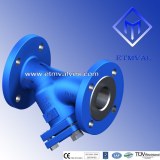Fluorescence immunity is a diagnostic technology that uses fluorescent markers to detect and measure the presence of specific antigens or antibodies in a patient's biological sample. This technology plays a critical role in diagnosing infectious diseases, autoimmune disorders, and oncology.
Fluorescence Immunity is a laboratory-based diagnostic technique, used to detect and measure the levels of various antibodies, antigens, or other molecules in a patient's blood. The test works on the principle of fluorescence, where a specific molecule is labeled with a fluorescent dye, and its interaction with the antigen or antibody under study is monitored. This technique is widely used in medical research, immunology, and microbiology, and has applications in the diagnosis of infectious diseases, autoimmune disorders, blood transfusion analysis, and immunodeficiency syndromes. Fluorescence immunity tests offer high sensitivity, specificity, and accuracy, and have become an indispensable tool in medical diagnostics and research.
Types of Fluorescence Immunity
Inflammation Monitoring Tests
They are laboratory tests used to measure the levels of inflammatory markers in a patient's blood. These tests can detect various markers such as cytokines, C-reactive protein, and other inflammatory markers. The test is based on the principle of fluorescence and is widely used in diagnosing and monitoring inflammation associated with various medical conditions such as autoimmune disorders, infections, and cancer.
Hypersensitive C-Reactive Protein+C-Reactive Protein (hsCRP+CRP) Tests
Procalcitonin (PCT) Tests
Cardiovascular Tests
They are laboratory tests used to measure the levels of certain molecules or markers in a patient's blood, associated with cardiovascular disease. These molecules or markers include cholesterol, triglycerides, lipoproteins, and high sensitivity C-reactive protein. The test is based on the principle of fluorescence and is widely used to diagnose and monitor cardiovascular disease risk and progression, as well as evaluate the effectiveness of therapy.
Cardial Troponin I (cTnI) Test Cassette
- terminal Pro-B-Type Natriuretic Peptide (NT-proBNP)
Kidney Fuction Tests
They measure the levels of specific markers in a patient's blood indicating the possibility of renal injury due to diabetes. These markers include albumin and creatinine. The test is based on the principle of fluorescence and is utilized to diagnose and monitor diabetic kidney disease, evaluate disease progression, and to assess the efficacy of treatments for the condition.
CystatinC (Cys C) Test Cassette
Microalbuminuria (UmAlb) Tests
Fertility Tests
They are laboratory tests used to detect and measure various hormones and other molecules that impact fertility. These include luteinizing hormone, follicle-stimulating hormone, estrogen, and progesterone. This test is based on the principle of fluorescence and is utilized to assess fertility in males and females, diagnose fertility disorders, and monitor fertility treatments.
Anti-Müllerian Hormone (AMH) Test Cassette
Fluorescence Immunity Faqs
Q.
How Does Fluorescence Immunity Work?
A.
The fluorescent marker used in the test binds to a specific molecule and begins to glow when exposed to an ultraviolet light source. The intensity of the fluorescence is proportional to the concentration of the molecule under study.
Q.
What Are The Advantages Of antigen lateral flow fluorescence test?
A.
Fluorescence immunity tests offer high sensitivity, specificity, and accuracy, are relatively quick, and can be used to detect a wide range of molecules.
Q.
What Are The Limitations Of Fluorescence Immunity Tests?
A.
Fluorescence immunity tests are laboratory-based and require specialized equipment, and cannot provide a diagnosis by themselves. These tests should be used in conjunction with a patient's clinical presentation and medical history for accurate disease diagnosis.
Q.
Is There Any Preparation Required Before The Test?
A.
Preparation for the test will depend on the specific test being conducted. Your healthcare provider will provide specific instructions.
Q.
How Long Does It Take To Receive Test Results?
A.
The time it takes to receive test results will depend on the type of test being done. Some tests, such as inflammation monitoring, can provide results within hours, while others may take several days to weeks. Your healthcare provider will inform you of the expected time frame for test results.
What Kinds Of Diseases Can Be Detected By Fluorescence Immunity?
Fluorescence immunity testing is a laboratory diagnostic technique that can detect and measure a wide range of diseases and biological markers in a patient's blood. These include infectious diseases such as HIV, toxoplasmosis, or Lyme disease, autoimmune disorders such as rheumatoid arthritis or lupus, cardiovascular diseases such as high cholesterol, hypertension or ischemia, and infertility evaluation. Fluorescence immunity testing is also used for cancer diagnosis, monitoring disease progression, and therapy response evaluation, and monitoring the effectiveness of treatments in managing chronic conditions such as diabetes, kidney disease, or neurological disorders. Fluorescence immunity is an essential tool in providing valuable diagnostic information for effective treatment and patient care.
Localisation : 2nd floor, No. 3, 8th Street, Qiantang Area, 310018 Hangzhou, Zhejiang, China, 310018 hangzhou,
Personne à contacter : theusbio prome, 0571 86908151








